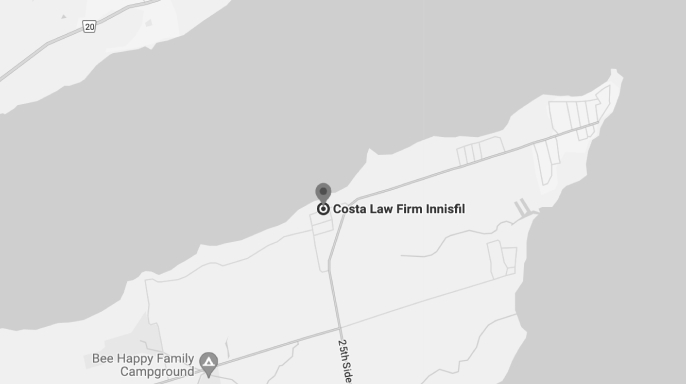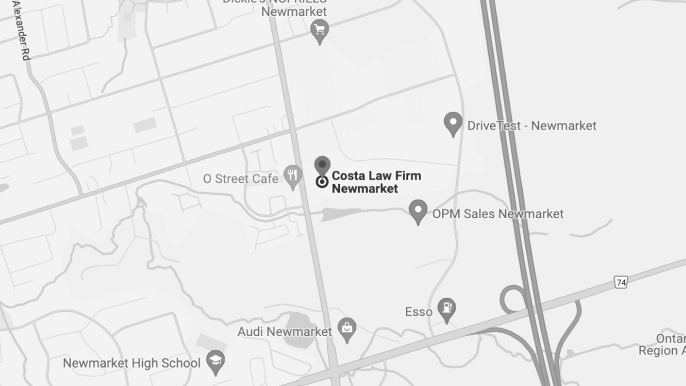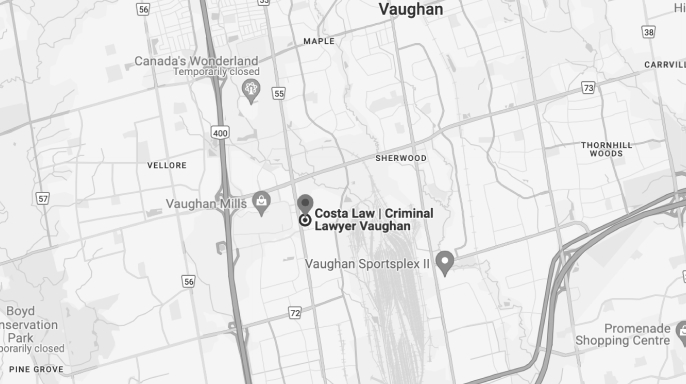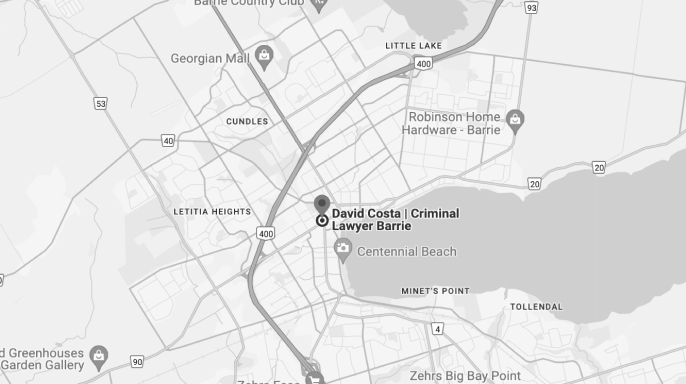What Is the Legal Blood Alcohol Limit in Canada?
Operating motor vehicles under the influence of alcohol is a driving prohibition and one of the leading criminal causes of injuries and deaths in Canada. A critical factor in a criminal impaired driving charge is the blood alcohol concentration (BAC). If you are convicted of driving over the lawful limit for alcohol, you face severe criminal penalties.
What Is Blood Alcohol Concentration?
Your blood alcohol concentration is the specific level of alcohol in your bloodstream. For instance, if your BAC is .04%, that means you have 40 milligrams of alcohol content in 100 millilitres of your blood. Social drinking, like a glass of wine with your dinner or beer after work, may not put you over 0.05 BAC level.
However, this doesn’t imply that you are not impaired. Various factors, like the percentage of alcohol in your drink, can significantly influence alcohol absorption into your blood. Therefore, it is best to refrain from driving after drinking.
Legal BAC Limits
In all provinces across Canada, the BAC limit for trained and fully licensed drivers is .08. This translates to 80 milligrams of alcohol in 100 ml of blood. Thus, driving with a blood alcohol concentration of .08 or higher is a federal criminal offence with severe penalties.
These penalties include driver’s license suspensions, fines, and criminal charges. If you are facing criminal impaired driving charges or allegations of criminal driving, consult a knowledgeable criminal defence lawyer.
Provincial BAC Limits
In some Canadian jurisdictions, a BAC between 0.05 and 0.79 is commonly referred to as the ‘warn range.’ If your BAC is within this range, you may face fines, license suspensions, and/or other provincial impaired driving penalties.
It is crucial to note that all Canadian provinces and territories follow a zero-tolerance policy for drivers under 21 years old (young drivers). This policy also covers individuals who drive on a probationary, graduated driver’s license or learner’s permit. Thus, driving with any amount of alcohol in one’s bloodstream is considered a criminal offence, and severe penalties, like suspension of one’s driver’s license, can result.
Mandatory Alcohol Screening
Federal laws for mandatory alcohol screening allow a police officer to lawfully stop drivers and request a breath test to determine the driver’s BAC. Thus, police officers can legally demand an initial roadside breath sample for an alcohol test even when they have no reasonable suspicion that the driver may have alcohol in their blood.
Whether sober or not, any driver who fails to provide a requested breath sample may face criminal charges – refusal to provide a breath sample. Thus, failure to comply with the police officers’ request is a criminal offence punishable by any relevant provincial penalties.
Why Is Mandatory Alcohol Screening Important?
Generally, mandatory alcohol screening helps in deterring and detecting alcohol-impaired motor vehicle operators. Research shows that up to 50 percent of drivers with BAC levels above the lawful limit may not be detected at the usual roadside checks. In various jurisdictions where mandatory alcohol screening was enacted, the rate of impaired driving and related fatal motor vehicle accidents was reduced significantly.
Reasonable Grounds for Roadside Alcohol and Drug Screening
Roadside drug testing should be performed through an oral fluid sample. Police officers should have a reasonable suspicion that a driver has alcohol or drugs in their body to request an oral fluid sample. The officer’s reasonable suspicion should be objective and based on discernable facts such as speech patterns, red eyes, agitation, and muscle tremors.
On the other hand, roadside alcohol testing should be performed through a breath sample. Unlike a roadside drug screening process, police officers can demand your breath sample whether they suspect that you recently consumed alcohol or not.
Thus, they can legally conduct a roadside alcohol screening on any motor vehicle driver who has been lawfully stopped as per existing authorities, such as the provincial Highway Traffic Act or common law.
Why Mandatory Alcohol Screening but Not for Drugs?
The technology available for an approved screening device for alcohol differs from that for drugs (oral samples). The approved screening device for drugs takes longer than the alcohol screening device and cannot convert oral fluid samples into a blood drug concentration.
In addition, the results of an oral fluid drug screener should be combined with other facts that led to a reasonable suspicion that the driver had drugs in their body. These facts and the drug screening results are crucial for the investigation to move forward.
Can BAC Level Vary?
Well, there is no accurate way of predicting your BAC level, as various factors can influence alcohol absorption into your blood. You cannot predict the number of glasses of wine or drinks you can take before exceeding the legal BAC level.
For instance, having a good meal can prevent you from getting drunk. However, it slows down the rate of alcohol absorption and keeps it in your bloodstream for a longer period. Other factors that can influence your BAC level include:
- Drinking on an empty stomach
- Consuming alcohol quickly
- Your body’s metabolic rate (often affected by your fitness, diet, emotional state, and more)
- Your weight
- The alcohol container size (even if you had one drink, focus on the quantity you have consumed)
- Being tired (this will affect the rate of alcohol absorption)
- The percentage or quantity of alcohol in the drink
- The alcohol type (fizzy drinks are often absorbed quickly)
Stimulants like caffeine cannot affect your blood alcohol concentration level. However, they often mask the alcohol effect, making you feel sober even when you are impaired.
Penalties for Impaired Driving in Canada
The legal penalties for individuals convicted of impaired driving in Canada were established by the Department of Justice. If you are convicted of your first alcohol-impaired driving at or above 0.08 within 2 hours of driving, you face a minimum penalty of $1,000 fine. The fine amount increases depending on the BAC level.
- 0.08 to 0.119 – fine of $1,000
- 0.120 to 0.159 – $1,500 fine
- Blowing 0.160 or higher – a minimum of $2,000 in fine
If you are convicted of your first drug-impaired driving offence with over 5ng of THC or other prohibited drugs in your blood within 2 hours of driving, you could face a mandatory minimum fine of $1,000 fine. The same penalty applies if you are found guilty of operating a motor vehicle with over 2.5ng of THC and a blood alcohol content of 0.05 level.
For the offences mentioned above, a second conviction, an offender will face a minimum prison time of 30 days. For a third conviction, an offender will get a minimum of 120 days in prison. Remember, the maximum penalty for alcohol-impaired driving and other convictions mentioned above is ten years imprisonment.
There is a mandatory minimum fine of $2,000 if you fail to provide a screening sample requested by the police officers. If you are convicted of impaired driving causing bodily harm, you are likely to face harsher penalties.
A summary of conviction for impaired driving causing bodily harm carries a maximum of two years imprisonment less a day. An indictment carries a maximum of 14 years imprisonment. On the other hand, impaired driving is an indictable offence that carries up to life imprisonment once convicted.
While each Canada’s province or territory has impaired driving laws that match the Criminal Code, some of them go further. If you are facing a criminal charge related to a blood alcohol content that exceeds the legal limit or any other driving prohibition, consult an experienced criminal defence lawyer with a deep understanding of criminal law.
CAUTIONARY WARNING: these writings are intended by Costa Law Firm Professional Corporation to serve strictly for promotional purposes and are not to be considered to be legal advice to the reader’s particular situation – ALWAYS actively consult directly and exchange particular information with a licensed lawyer or paralegal as appropriate in the circumstances.
David Costa
Dir.(416)788-6329





